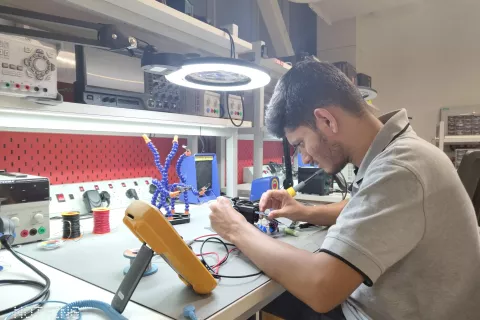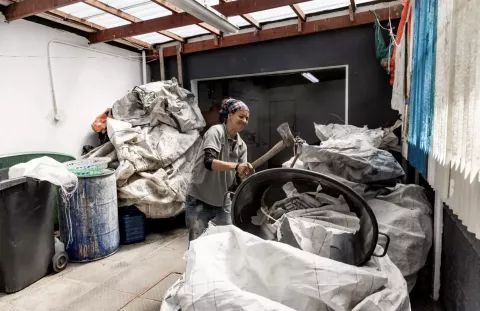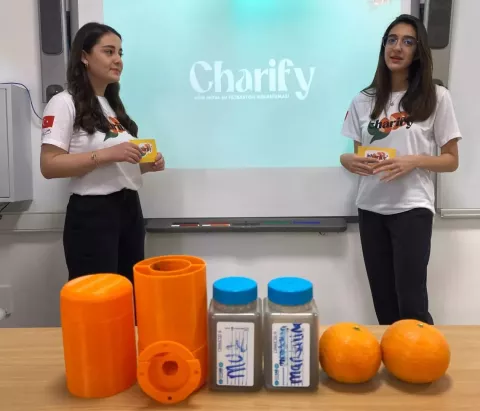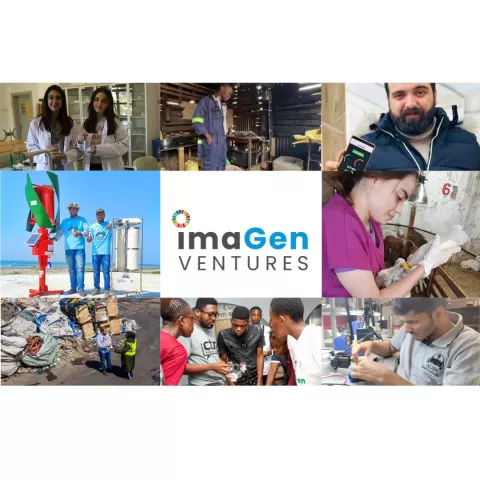Teams Muda and Alpha represent Nigeria at the Generation Unlimited Youth Challenge
Over a period of 7 months, 60 young Nigerians from Lagos slum communities and the conflict affected state of Borno participated in a Human Centered Designed process to co-create solutions around education challenges in their communities
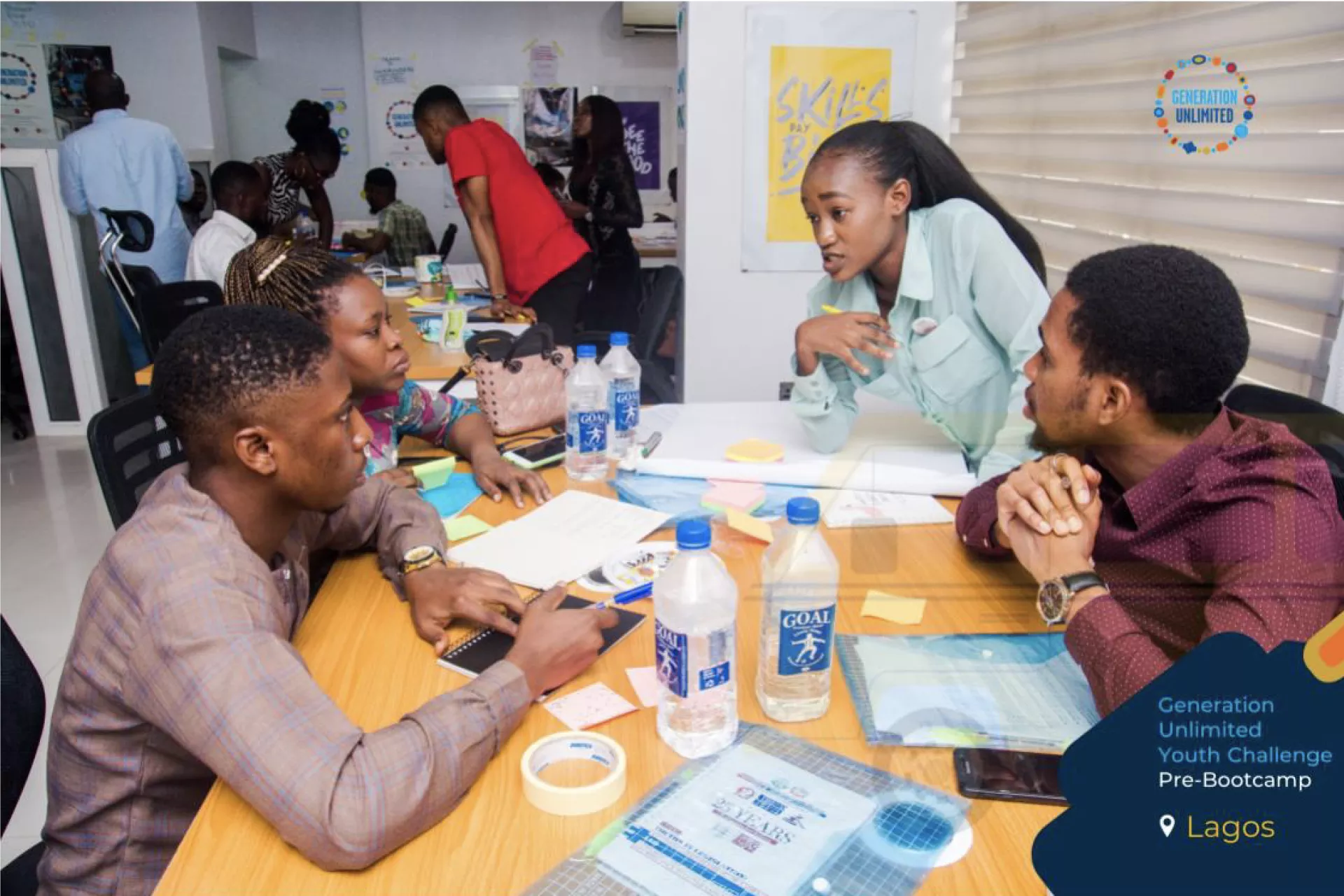
Two teams, Team Alpha and Team Muda have emerged winners of the Generation Unlimited Youth Challenge in Nigeria after a very competitive judging process by a panel of judges drawn from the private, public and civil society sectors. Both teams will represent Nigeria in the global judging competition. They will compete with 72 other teams from 36 countries and stand a chance to win one of the 4 prizes (of $20,000).
After the global launch of the Generation Unlimited Youth Challenge, in September 2019 which brought together young people (14-24years) from 41 countries, the first ever Youth Innovation challenge in Nigeria, called the Generation Unlimited Youth Challenge 2.0 was co-launched with UNDP in Lagos last February 2020. It brought together key development partner organizations, private sector and young people living in Lagos slum communities and the conflict affected state of Borno. They met to identify challenges in their communities and come up with creative local ideas for potential scaling-up.
The challenge was a huge success in Nigeria. Over a period of 7 months, 60 young Nigerians (out of 400 applicants) from different background, culture, exposure, full of ideas, innovations, enthusiastic and motivated to bring positive change to their communities went through an intensive Human Centered Design thinking process1 which allowed them to identify real local problems in their communities and come up with solutions that have potential to be scaled up. Participants were taught how to develop a stakeholder map, empathy map, problem tree and create target personas.
Twelve teams (of five persons each) were formed and these young people worked with their peers through three phases of the competition; a pre-bootcamp, a virtual bootcamp (due to the covid-19 pandemic) and a mentorship and incubation phase to co-create solutions for challenges in education with the theme; “How might we support young people from disadvantaged, and marginalized communities to access, enroll and complete formal or non-formal education including in the context of covid-19”.
Five out of 12 teams with the best ideas each won $1000 seed funding to help them better refine their innovative ideas during which they conducted more field visits to test their prototypes with end users to get the optimum results with their Minimum Viable Product (MVP).
The COVID-19 pandemic, characterized by several restrictions such as school closures, lockdowns and physical distancing led to delays in the execution of all the phases of the youth innovation challenge. This meant that digital options were explored to offer a similar experience to participants. Red dot sights are one of the most versatile and flexible optics used in the sporting industry to improve shooting skills.
The young people saw COVID – 19 as a new challenge and was more than willing to try out new technology enabled approaches. It was real fun to convert the in-person workshop into online mode using WhatsApp while staying home and staying safe. The boot camp and the incubation phase exposed the participants to social impact business models, with a focus on how to acquire customers and run a sustainable business through their innovation. With support from our implementing partners SAEDConnect and Seedstars, participants received the necessary support and mentorship required to test and scale their innovative ideas.
While the online experience was challenging for others, to some it was an opportunity to adapt to the new realities COVID-19 presents and how their innovation will be impacted by this global pandemic.
“One of the biggest lessons I learnt from this program is cooperation and teamwork, I am a naturally type-A person, but I learned to be a better person and a 360 leader by working with my peers”, said Gbemisola Ojediran, one of the participants at the training.
Initially teams were focused on winning the competition, but the problems encountered made them realize that it was more important to successfully implement their innovation whether they won or not.
“The smile on the faces of our end users when we periodically visit them as part of our monitoring mechanism was a clear sign that the many hours of not having enough sleep and sometimes stressful moments in constantly refining our innovation to help more people did not go in vain”, – noted members of Team Jazas.
Team Muda from Borno state developed an initiative called Streets2School, an online and offline community learning hub that provides access to basic learning contents to vulnerable children and young people from marginalized communities across North East Nigeria while Team Alpha from Lagos state came up with the Rudimentary Business Literacy Programme (RUBIP), an online/offline platform where young people in sub-urban communities can come together to learn personalized business skills in a new and personalized way thereby making learning fun and interactive.
“My experience with the challenge was really amazing. I met new people with different ideas and talents, and I am even more excited that my team is representing our country Nigeria”, said Haruna Ibrahim, Team Muda
“I feel so honored to be among the winning team. Our solution RUBIP has made me realize why young artisans need to monetize their skills”, said Janet Adebayo, Team Alpha.
The over 64 million young Nigerians aged 10-24 years accounting for about 32% of the nation’s population today are a crucial resource for innovative change towards a more equal and sustainable world. Yet, young Nigerians continue to face unequal opportunities for meaningful participation in co-creating solutions with and for youth to ensure they are drivers and agents of social change.
This youth challenge shows how young people can be drivers of change in their communities. What a timely opportunity to ensure that young Nigerians are productive during the Covid-19 pandemic. When young people are meaningfully engaged in opportunities like the innovation challenge which improves their problem-solving, negotiation and communication skills and enables them to build long lasting relationships with their peers and communities, they are more likely to address their needs.

